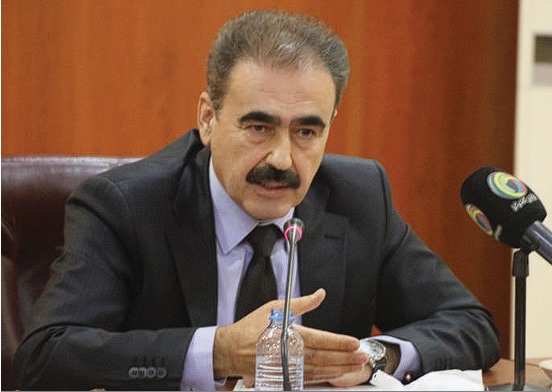By Hiwa Ahmed Mustafa *
The Syrian state, as one of the main pillars of the Shiite Islamic Resistance in the region, was marked by its leader, Bashar al-Assad, being Alawite. However, the regime was not Shiite Islamic but rather led by the Ba’ath Party, which held power in Syria with a long and historical trajectory. The Ba’ath regime has ruled for decades, first under Hafez al-Assad and later under his son Bashar al-Assad, maintaining control with an iron fist. There was no freedom, democracy, or multi-party system, and human rights were disregarded. Those opposing the regime were detained in prisons and tortured in the most brutal and inhumane ways. Merely observing images of prison victims reveals the inhumanity endured by innocents, reinforcing the belief that the fall of Assad’s regime is a moment of relief for all humanity and the entire region.
The collapse and rapid downfall of Assad’s regime demonstrate that it neither relied on its people nor made efforts for the benefit of the Syrian populace. Consequently, when the regime’s support dwindled and it refrained from fighting back, Bashar al-Assad could not avoid the catastrophe that befell him and was overthrown in his own country.
Now, regarding Syria, all of us need to respect the will of the Syrian people, assist them in transitioning quickly through this critical phase, establish a new constitution for Syria, and allow the people to determine their future.
Those currently in power in Damascus, like the “Hay’at Tahrir al-Sham (HTS),” initially attempted to present themselves with a logical and systematic approach, including statements about the rights and identity of Syrian Kurds. If this approach continues and respect for the rights of all Syrian ethnic and religious groups is upheld, and if these principles are incorporated into Syria’s new constitution—especially the rights of Syrian Kurds, who to this day are not even considered proper citizens in Syria and have been deprived of all their rights—it would be a significant development.
It is very important for our brothers, “the Syrian Kurds,” to adopt a rational approach to these changes and seize the opportunity to benefit from them. This requires the Kurdish political forces in Syria, such as the Syrian Democratic Forces, ENKS, and PYD, to transcend ideological and party-specific disputes and prioritize the collective interests of Syrian Kurds over partisan concerns.
The current reality of Rojava in Kurdistan, which corresponds to northeast Syria, must be closely scrutinized. This region, with its geographical proximity to Turkey, necessitates dialogue with Turkey to establish proper relations, as Turkey is always capable of creating problems for Syria in general and for Kurds in particular.
It is crucial for the Kurdish political forces in Syria to analyze the current regional circumstances logically, strive to maintain unity, and distance themselves from the PKK’s ideological influence. This recognition is essential because if the Syrian Kurdish forces had not been granted support during their fight against the terrorist ISIS forces, a different situation might now prevail. They need to adapt to the new changes and developments.
Ahmed Shar’s recent statements, which emphasized the central role of Kurds in the Syrian population, are reassuring. Similarly, President Barzani’s messages regarding these matters convey the sentiment that we must take advantage of this opportunity for the benefit of Syrian Kurds by ensuring that their rights are secured through dialogue and negotiations in the new Syria.
The specific concern for our Kurdish brothers in Syria is that the region’s current political situation and the balance of power in post-transitional Syria must be thoroughly examined. The existence of PKK forces and Qandil’s leadership in Rojava has become a determinant in Rojava’s future. Therefore, if the Syrian Democratic Forces, predominantly Syrian Kurds, distance themselves from the PKK, it could prevent further Turkish aggression against Rojava and reduce risks. Kurdish media in Kurdistan must focus on separating the Syrian Kurdish issue from the PKK and shaping public opinion to ensure that this opportunity for Syrian Kurds is not lost.
Another crucial issue for the stability of the region involves the detention camps like “Hol” and “Roj,” where over 50,000 individuals, mostly linked to ISIS, reside. If these camps are not secured and their populations effectively managed, they could again pose a significant threat to Syria, Iraq, and the Kurdistan Region by enabling a resurgence of ISIS.
In general, the recent changes in Syria, culminating in the fall of the Assad regime, can be viewed as a positive turning point for the entire region if approached logically. It is crucial for Iraq to prevent armed groups within its borders from attacking neighboring countries, thereby avoiding any justification for Iraq’s involvement in this conflict. This moment presents an opportunity for the Syrian Kurds to secure their rights. However, unity is essential, and it is vital for them to break free from the constraints of PKK ideology.
* Member of the Political Bureau of the Kurdistan Democratic Party

